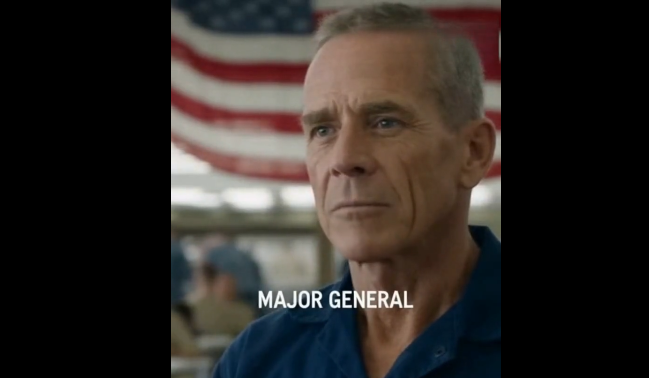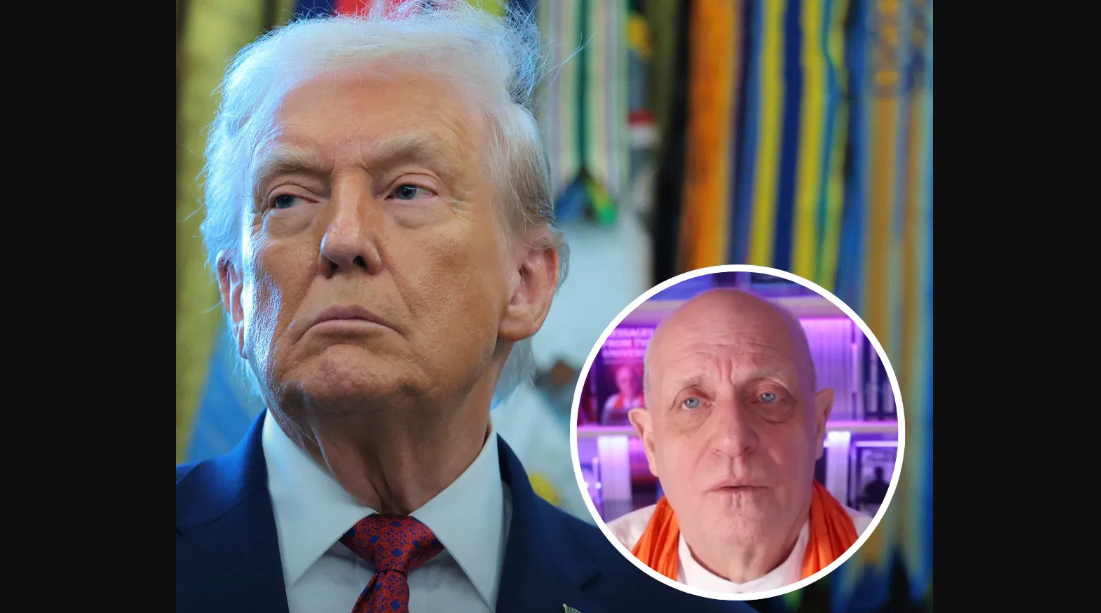SEAL Admiral Teased a Single Father About His Rank in Fun – Then ‘Major General’ Caused Him to Stagger in Alarm
Morning at Naval Special Warfare carries a distinct rhythm—boots echoing on tile, stainless trays gliding along, the soft buzz of fluorescent lights and the American flag gently moving in the air-conditioning. He arrived ahead of the officers, as usual, guiding a mop with the steady accuracy you would anticipate from a man who arranges every shirt in identical fashion.
People addressed him as “sir” only by mistake; mostly he remained “hey, maintenance,” the single dad who started at 5 a.m., maintained focus on his tasks, and departed in time to review algebra homework before bedtime. He understood which table wobbled, which door stuck, which lieutenant uttered “copy that” when he intended “no.”
He comprehended the room more thoroughly than anyone who dined in it. Then the admiral entered. SEAL trident secured over a chest adorned with ribbons, handshake firm like a judge’s ruling, smile keen enough to graze the rim of a plate. He navigated a circuit through the mess like a political appearance—pats on backs, quick inquiries, rapid assessments.
When his eyes settled on the janitor, the grin shifted sideways. “What’s your rank, son?” he inquired, loud enough for the surrounding tables to catch. Laughter handled the remainder—courteous initially, then bolder. A few young officers leaned forward, anticipating the hesitation, the regret, the casual dismissal. The man aligned his posture—not dramatically, enough for the decades to rest properly on his frame. No exaggeration. No address.
A father who prepared lunches at 6 and committed emergency contacts to memory, who recognized that power requiring declaration lacks true value. Two words. Major General.
The room did not exhale dramatically so much as it grew hushed under authority. You could detect the air flowing back into the vents. One of the coffee cups tapped against a saucer.
The admiral’s smile did not drop—it vanished, like someone had released a valve within his chest. Because “Major General” represented no estimate, and it carried no humor, and it belonged nowhere in the speech of the man gripping a mop beneath the flag.
“Name?” the admiral uttered, voice thinning to fragility:
“Jameson. David Jameson,” arrived the calm response, precise and distinct like an order resonating across years of training and terrain.
The admiral blinked. Somewhere in his mind, mechanisms were turning, attempting to align the name with the face. Databases held hundreds of generals, but only select ones left impressions profound enough to remain sealed, hidden beneath strata of obscured text and access restrictions. And this man—this janitor with a mop and worn sneakers—stood among them.
“You can’t be…” the admiral murmured, but the remainder of his words faded like his assurance.
David offered no reply. He held no need. Instead, he lifted the mop once more, immersed it quietly into the bucket, and started guiding it in measured, uniform passes across the tile, as if he had not ignited a profound quiet in the center of the mess hall.
The admiral retreated a step. Then another. He observed how motionless the room had turned—not merely from bewilderment or unease, but respect. The few who identified the name appeared noticeably ashen. One captain released his fork. Another sergeant seemed intent on blending into his chair.
Only a limited number of individuals grasped what David Jameson had accomplished. And they belonged to the type who spoke only under oaths of confidentiality.
News traveled quicker than illness in confined quarters. By noon, accounts of the incident had circulated along corridors, through logistics areas, into instructional sessions. “Major General” Jameson, the maintenance worker? Impossible. Except… indeed. Documents were retrieved discreetly, obscured records accessed with elevated security notifications. The name appeared—beneath coverings of dark markings and expired authorization labels. Honors lacking explanations. Operations without recorded dates.
In the CO’s office, a junior intelligence officer gazed at the display. Operation Silencer. Operation Breakwater. Operation Elysium. All obscured. All triumphant. All directed by one man: Jameson.
Meanwhile, in the cafeteria, David emptied the mop water without ceremony and stepped out into the sunlight. He avoided spotlight. That explained his departure originally. After his wife passed away, medals overwhelmed while time to nurture a child fell short. So he surrendered the stars, acquired a civilian identification, and secured employment cleaning floors at the single location where his background held significance, even if nobody understood the reason.
That night, his daughter, Ella, sat at the kitchen table. Algebra book spread, two pencils readied. When David entered, she smiled, as if her math teacher had not mentioned that the “custodian” arrived early each week to assist the staff with cleaning before lessons.
“Dad,” she said, “were you in the Army?”
David halted, placed his lunch pail aside, and smiled. “For a while.”
“Were you… like, important?”
He laughed, settling beside her at last. “You ever see me treat anything like a big deal?”
“No…”
“Then there’s your answer.”
But calm did not persist. The following morning, a black SUV stood at the curb. Two men in civilian attire emerged, carrying envelopes. Formal. Substantial. David spotted them and recognized immediately—they served not as recruiters or veterans’ representatives. These handled high-level resolutions, the ones who appeared when inquiries arose that should remain unasked.
The taller one acknowledged David, opened the folder, and said, “We have an issue.”
“I assumed,” David replied, arms folded.
“Your name surfaced on a system that should lack it. We’re examining the intrusion.”
David’s jaw firmed. “And?”
“And pursuit intensifies. Systems pinged from three continents in two hours. Someone identifies you… and seeks your return to action.”
“I’m retired.”
The shorter agent advanced. “We’re not requesting return. We’re inquiring if you recognize who searches for you.”
David’s thoughts processed options like a decoder evaluating sequences. Foes? Former allies turned? No, this varied.
“Who’s the objective?” he asked at length.
The agents shared a glance.
“We don’t know,” the taller one conceded. “Yet.”
That night, David found no rest. He watched the ceiling fan as it turned in gradual, mesmerizing loops. Then he rose, approached the hall closet, and accessed a metal container untouched for years. Inside: an aged uniform, a pistol, a pair of dog tags. And below those—an encrypted thumb drive, one ignored since the day he departed.
He inserted it into his laptop. The screen flickered, then displayed a known interface. Mission records. Connections. One name glowed red—Jacob Varick.
His pulse steadied. Varick had been declared lost. A specter from Operation Elysium, last observed vanishing into foliage during a rescue extraction that unraveled. But if active, and scanning U.S. defense networks for names like Jameson, then reunion over beverages held no place.
He orchestrated something. And David had emerged as the initial marker in a path the government lacked means to trace.
He resolved in that moment—he could not shield his daughter from darkness while lingering within it. So the next morning, he skipped the mess hall. He filled a duffel, left Ella with her aunt across town, and boarded a charter flight the agents had “conveniently” provided.
His fresh assignment operated beyond records. No support. No additional forces. The subtle conflict of former adversaries maneuvering across nations and eras. The plane touched down in Guatemala. From there, he drove a jeep into the highlands, where accounts emerged of a mercenary facility constructed like a stronghold.
It required until the third night for David to locate it—concealed amid dense vegetation and signal interference. Security proved rigorous, but he gathered what he required. The facility served beyond a headquarters. It functioned as preparation area. Maps. Satellite links. Weapon containers. And one chamber, secured by biometric locks, marked plainly: Elysium Redux.
David initiated at first light.
The operation proved precise—quiet infiltrations, subdued sentries, information extracted from the main server in under three minutes. He neared escape when a voice sounded behind him.
“Well, I’ll be damned.”
He pivoted.
Jacob Varick appeared, thinner, harsher, the years carved into his features like a chart of disloyalty.
“Jameson,” Varick smiled. “I thought the janitor role would keep you hidden.”
David offered no smile. “You always did undervalue others.”
Varick raised his weapon, but David acted swifter. The shot resounded through the jungle. The history, interred beneath deception and quiet, concluded with one round.
By the time response teams arrived, David had vanished. The server information reached Washington. The facility became debris. And the name “Jameson” underwent reclassification once more—this time under fresh identity. Fresh site. Fresh position.
Weeks later, back at the naval base, a new janitor guided the mop along the hallways. Quiet, reliable, unnoticed.
And in a modest house in the suburbs, Ella received a postcard from a “distant cousin” in Florida, with a photo of a beach and one line written in neat, tidy print:
“Power that needs announcing isn’t power worth having. Love, Dad.”







